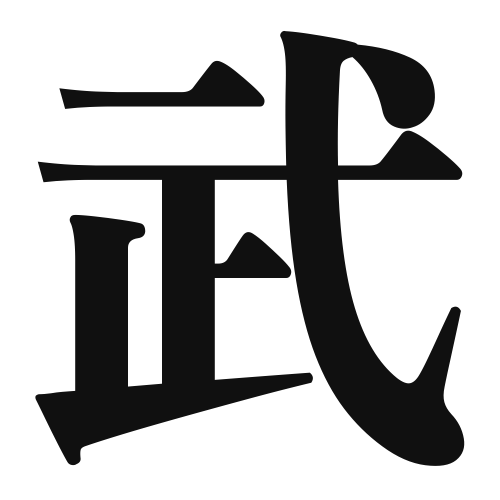1. Overview of Meaning
The kanji “武” (bu) primarily means “military” or “martial.” It is often associated with concepts of strength, combat, and the warrior spirit.
2. Formation and Radical
The kanji “武” is a compound character, which means it is formed by combining different elements. It consists of the radical “止” (shi), which means “to stop,” and the phonetic component “戈” (ka), which represents a type of weapon. This combination suggests the idea of stopping an enemy with a weapon.
3. Examples of Usage
Common words and phrases that include “武” are:
- 武道 (budō) – martial arts
- 武士 (bushi) – samurai
- 武器 (buki) – weapon
Example sentences in daily conversation:
- 彼は武道を学んでいます。 (Kare wa budō o manandeimasu.) – He is studying martial arts.
- 武士は名誉を重んじます。 (Bushi wa meiyo o omonjimasu.) – Samurai value honor.
4. Synonyms and Antonyms
Similar kanji with related meanings include:
- 闘 (tō) – to fight, which emphasizes the act of fighting rather than the martial aspect.
- 戦 (sen) – war, which refers to larger conflicts rather than individual combat.
Antonyms include:
- 和 (wa) – peace, which represents harmony and the absence of conflict.
5. Cultural and Historical Background
The kanji “武” is deeply rooted in Japanese culture, particularly in the context of the samurai and their code of honor. It reflects the historical significance of martial skills in Japanese society.
Proverbs and idiomatic expressions related to “武” include:
- 武士道 (bushidō) – the way of the warrior, which embodies the ethical code of the samurai.
- 武器を持たずして戦う (buki o motazushite tatakau) – to fight without weapons, which implies using intelligence or strategy instead of brute force.
